
A musical ensemble, also known as a music group or musical group, is a group of people who perform instrumental and/or vocal music, with the ensemble typically known by a distinct name. Some music ensembles consist solely of instrumentalists, such as the jazz quartet or the orchestra. Other music ensembles consist solely of singers, such as choirs and doo-wop groups. In both popular music and classical music, there are ensembles in which both instrumentalists and singers perform, such as the rock band or the Baroque chamber group for basso continuo and one or more singers. In classical music, trios or quartets either blend the sounds of musical instrument families or group instruments from the same instrument family, such as string ensembles or wind ensembles. Some ensembles blend the sounds of a variety of instrument families, such as the orchestra, which uses a string section, brass instruments, woodwinds, and percussion instruments, or the concert band, which uses brass, woodwinds, and percussion.

Esa-Pekka Salonen is a Finnish conductor and composer. He is the music director of the San Francisco Symphony and conductor laureate of the Los Angeles Philharmonic, Philharmonia Orchestra in London and the Swedish Radio Symphony Orchestra.

Joan Tower is a Grammy-winning contemporary American composer, concert pianist and conductor. Lauded by The New Yorker as "one of the most successful woman composers of all time", her bold and energetic compositions have been performed in concert halls around the world. After gaining recognition for her first orchestral composition, Sequoia (1981), a tone poem which structurally depicts a giant tree from trunk to needles, she has gone on to compose a variety of instrumental works including Fanfare for the Uncommon Woman, which is something of a response to Aaron Copland's Fanfare for the Common Man, the Island Prelude, five string quartets, and an assortment of other tone poems. Tower was pianist and founding member of the Naumburg Award-winning Da Capo Chamber Players, which commissioned and premiered many of her early works, including her widely performed Petroushskates.
Epitaph is a composition by jazz musician Charles Mingus. It is 4,235 measures long, takes more than two hours to perform, and was only completely discovered during the cataloguing process after his death. With the help of a grant from the Ford Foundation, the score and instrumental parts were copied, and the work itself was premiered by a 30-piece orchestra, conducted by Gunther Schuller and produced by Mingus's widow, Sue, at Alice Tully Hall on June 3, 1989, 10 years after his death, and issued as a live album. It was performed again at several concerts in 2007.
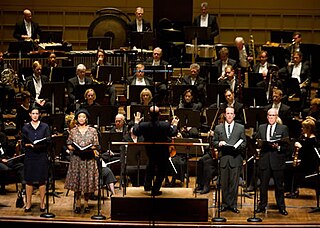
Steven Edward Stucky was a Pulitzer Prize-winning American composer.
Derek Bermel is an American composer, clarinetist and conductor whose music blends various facets of world music, funk and jazz with largely classical performing forces and musical vocabulary. He is the recipient of various awards including a Guggenheim Fellowship and the American Academy in Rome's Rome Prize awarded to artists for a year-long residency in Rome.

Augusta Read Thomas is an American composer and University Professor of Composition in the Department of Music at the University of Chicago, where she is also director of the Chicago Center for Contemporary Composition.

Vinko Globokar is a French-Slovenian avant-garde composer and trombonist.

Will Power is the eighth album by Joe Jackson. Released in 1987, it is his first experiment with classical music, continued in later albums including Night Music, Heaven and Hell, and Symphony No. 1.

Bruno Mantovani is a French composer. He has been awarded first prizes from the Conservatoire de Paris which he joined in 1993. His work has been commissioned by the French government as well as other organizations. In September 2010 he was appointed to the post of director of the Paris Conservatory.
Hanna Kulenty is a Polish composer of contemporary classical music. Since 1992, she has worked and lived both in Warsaw (Poland) and in Arnhem (Netherlands).

Svante Henryson is a composer, cellist, bass guitarist and double bassist, active within jazz, classical music, and hard rock.

Thierry Joseph-Louis Escaich is a French organist and composer.
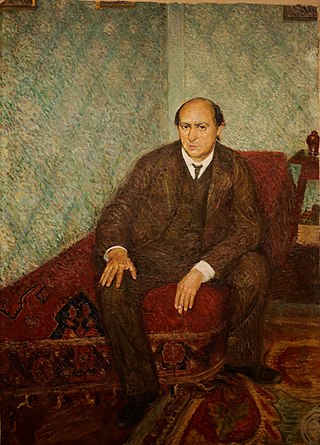
The Chamber Symphony No. 1 in E major, Op. 9 is a composition by Austrian composer Arnold Schoenberg.
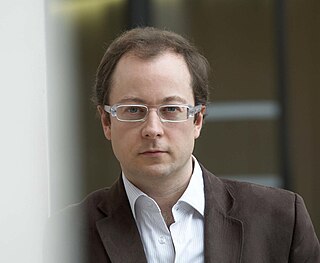
Guillaume Connesson is a French composer born in 1970 in Boulogne-Billancourt.
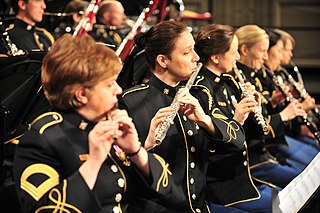
The woodwind section, which consists of woodwind instruments, is one of the main sections of an orchestra or concert band. Woodwind sections contain instruments given Hornbostel-Sachs classifications of 421 and 422, but exclude 423
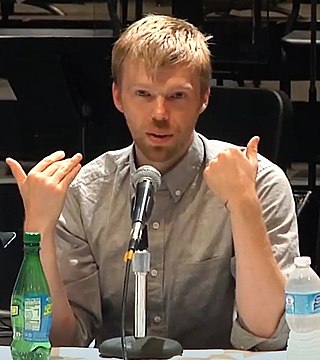
Andrew Norman is an American composer of contemporary classical music whose texturally complex music is influenced by architecture and the visual arts.
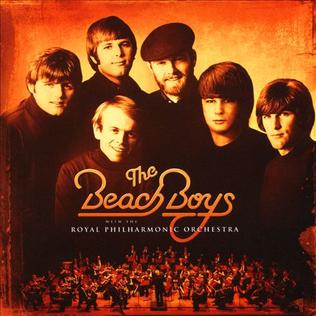
The Beach Boys with the Royal Philharmonic Orchestra is a 2018 album of remixed Beach Boys recordings with new orchestral arrangements performed by the Royal Philharmonic Orchestra. It was produced by Nick Patrick and Don Reedman, who conducted similar projects for Roy Orbison and Elvis Presley.














